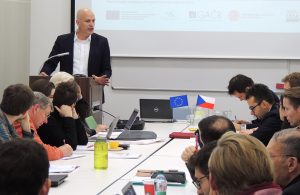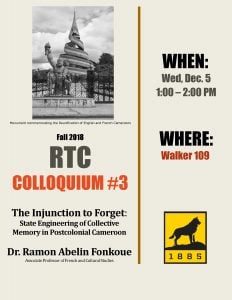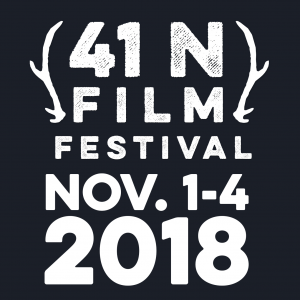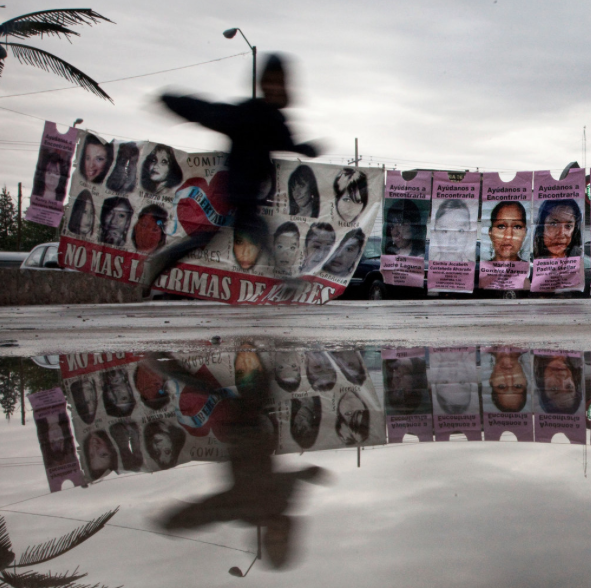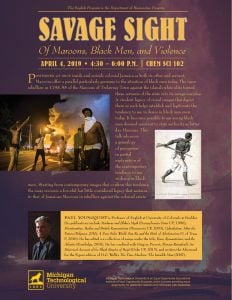 Paul Youngquist, from the University of Colorado at Boulder, will deliver the talk, “Savage Vision: Of Maroons, Black Men and Violence” from 4:30 – 6 p.m. Thursday (April 4) in ChemSci 102.
Paul Youngquist, from the University of Colorado at Boulder, will deliver the talk, “Savage Vision: Of Maroons, Black Men and Violence” from 4:30 – 6 p.m. Thursday (April 4) in ChemSci 102.
This talk will focus on how Maroons were depicted by white colonial settlers in Jamaica in the aftermath of the Second Maroon War (1795-96) and connect these portraits to how young black men are represented in the news media today.
This talk is sponsored by the English program in the Humanities department.


